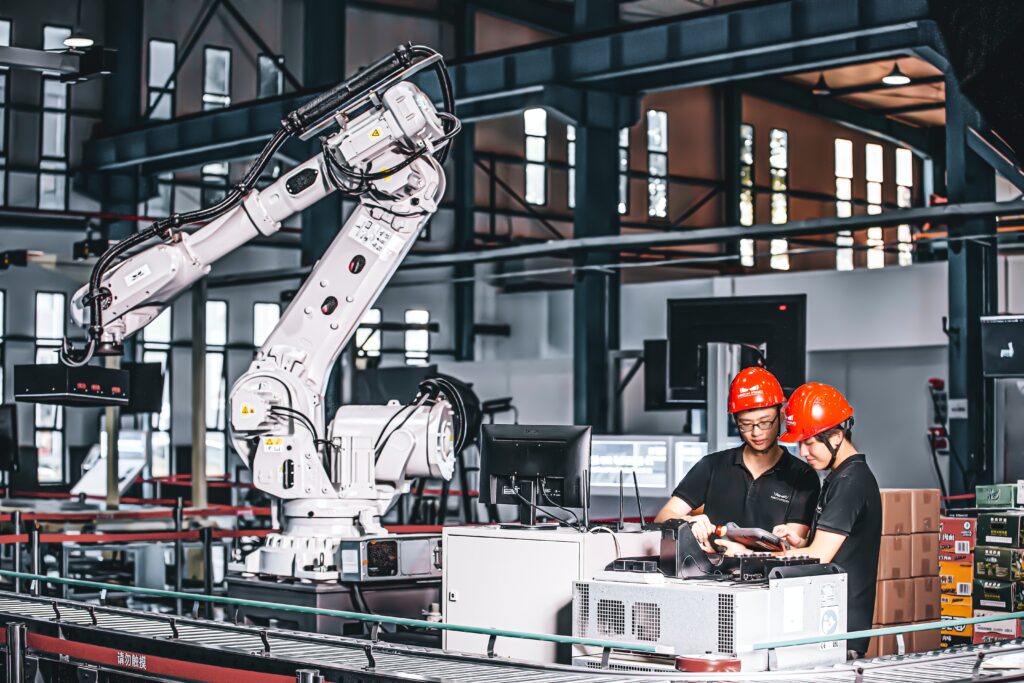Manufacturing is an industry that relies on automation for things like simplifying production processes and keeping workers safe. As technology continues advancing, the Citizens Broadband Radio Service (CBRS) enables factories to stay connected and incorporate the latest innovations into their production processes.

Photo by Mech Mind
The shared spectrum regime in the CBRS band allows for flexible access in 3.5 GHz, creating a seamless shared use of spectrum that benefits many industries. WifiForward explored the benefits CBRS created for agriculture, and manufacturing is another industry that stands to gain a lot from shared spectrum regimes like CBRS.
In the CBRS band, 5G networks bring a staggering amount of benefits to manufacturing plants and their employees. High-speed connectivity allows for secure data sharing and communication on a global scale, lower coverage costs and more high-tech equipment, such as AR/VR, that can be used by engineers remotely to help colleagues on the ground floor.
There are already several examples of factories using CBRS to improve productivity.
In Wisconsin, a Foxconn industrial factory is using CBRS to connect 18 pieces of equipment, including mobile equipment, to a private network in a 100,000-square-foot facility. Internet of Things (IoT) and Industrial Internet of Things (IIoT) technology allows manufacturers to develop AI devices that provide data capture, defect detection and predictive analytics. With the increase in data processing and analytics that happens in manufacturing these days, high-speed broadband is critical in ensuring that communication and data processing runs as efficiently as possible.
A Pennsylvania steel factory was facing challenges to its productivity due to spotty connectivity and unreliable coverage. Metal, which the manufacturing plant is made of, is a difficult material for Wi-Fi to penetrate. To overcome these challenges, the manufacturer utilized Celona’s 5G LAN solution which combined private wireless radios and CBRS. This deployment created a private network that allowed the factory to use four times fewer access points indoors and 6x fewer access points outdoors. Since moving over to CBRS, the plant has added more mobile devices which have greatly improved operations.
The manufacturing industry will continue to rely on automation and connectivity to maintain its efficiency and CBRS makes this attainable. The possibilities with private networks are endless and strong investment in shared spectrum regimes infrastructure will turn these ideas into reality.
